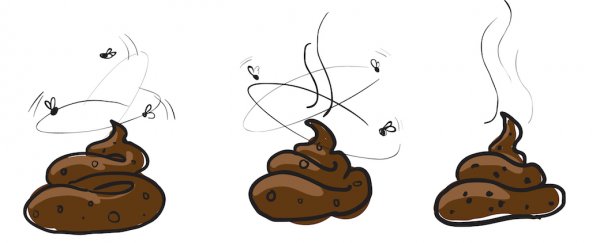Poop, as we all know, is not exactly friendly dinner table conversation, unless of course the money earned from donating your poop is covering the bill.
That's right, money. For poop. Let me explain.
Faecal microbiota transplantation (FMT) is a process whereby faecal matter from a healthy donor is administered into the colon of someone with an unhealthy gut, usually someone who has suffered recurrent infections of the aggressive intestinal bacteria known as Clostridium difficile, which can cause severe diarrhea and sometimes prove fatal.
Infections commonly occur during hospital stays, and result from ingesting the bacteria, which live in human excrement. Usually the bacteria will be kept in check by the multitude of microorganisms residing in your gut - so long as you're healthy.
If you've recently taken antibiotics for some unrelated health concern, however, you may not be so lucky. These drugs suppress the 'helpful' organisms in your digestive system and allow the C.difficile to establish itself in the intestine.
Somewhat ironically, the conventional treatment for a C.difficile infection, is - you guessed it - antibiotics. But poop transplants either through nasal administration or colonoscopy are an increasingly popular (out of desperation, anyway) alternative, which, in trials, have been shown to cure up to 90 percent of infections. Although it's not exactly clear why, bacteria from the introduced poop becomes dominant and helps the gut to recover.
But getting healthy poop is a problem.
This is where OpenBiome comes in. The non-profit organisation based in Massachusetts in the US is seeking ultra-healthy stool donors, and if you pass their rigorous screening process, you could earn some cold hard cash.
They pay $40 per donation, plus a $50 bonus if you can make five on-site poops in a week, so they're especially interested in locals. If you can commit to that hectic schedule for a full calendar year, your earning potential from poop could reach about $13,000 (we're not sure if that's tax free, but considering you're helping out a non-profit organisation and potentially saving lives in the process, we're assuming you might be eligible for some kind of concession).
Not so fast though - becoming a donor isn't easy. As Rachel Feltman of The Washington Post reports, only 4 percent of the roughly 1,000 potential donors who've expressed an interest have passed the extensive medical questioning, blood screening and stool testing. You can peruse OpenBiome's step-by-step registration and screening process at their website.
"It's harder to become a donor than it is to get into MIT," co-founder Mark Smith, who got his PhD in microbiology at MIT, jokingly told The Washington Post.
Their rigorous screening process is designed to keep recipients safe, as there may still be some unknown complications that arise from FMT. It was recently reported that a woman in the US rapidly gained weight, to the point of being obese, following an FMT from an overweight donor.
Once OpenBiome has your poop, they mix it with a buffer to protect its bacteria, and then put it through a homogenisation and filtration process, which removes any unwanted bulk and fibre. It's then frozen inside a plastic bottle at minus 80 degrees Celsius, and eventually shipped - on ice - to one of their 180 partner hospitals across the US.
Smith helped found OpenBiome in 2013 after watching a friend struggle for nearly two years with a recurring C. difficile infection. "I never thought that after getting my PhD I'd start mailing poop around," he told The Washington Post. "But here I am."
In case you're still in the dark about how poop transplants work, check out the below video by MinuteEarth:
Sources: Free Enterprise, MinuteEarth, Washington Post
